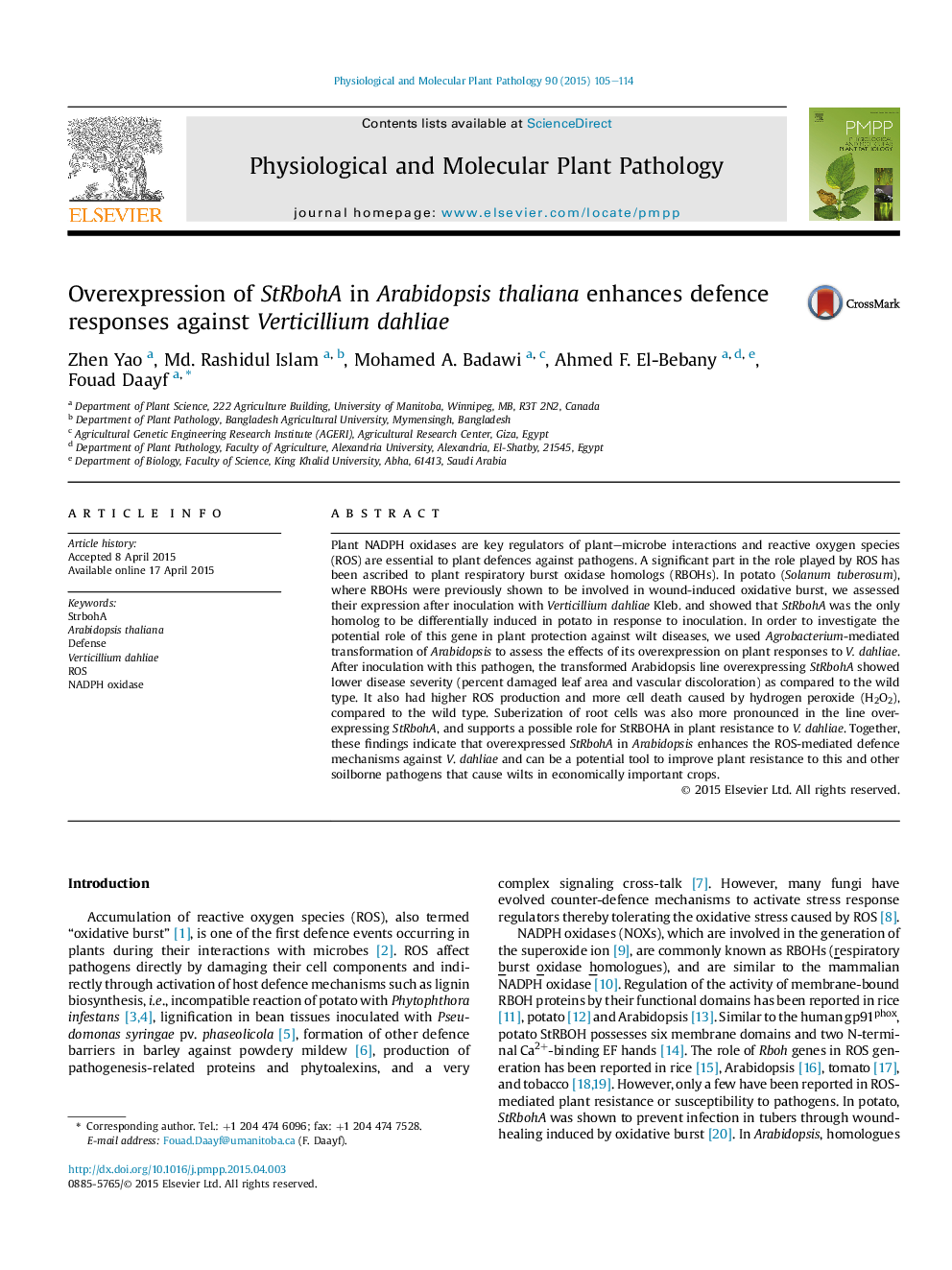| Article ID | Journal | Published Year | Pages | File Type |
|---|---|---|---|---|
| 2836288 | Physiological and Molecular Plant Pathology | 2015 | 10 Pages |
•StRbohA was differentially induced in potato in response to inoculation with Verticillium dahliae.•Agrobacterium-mediated transformation of Arabidopsis showed that overexpression of StRbohA affected plant responses to V. dahliae.•Arabidopsis line overexpressing StRbohA showed lower disease severity than the wild type.•Arabidopsis line overexpressing StRbohA had higher ROS production than the wild type.•Suberization of root cells was also more pronounced in the Arabidopsis line overexpressing StRbohA than the wild type.
Plant NADPH oxidases are key regulators of plant–microbe interactions and reactive oxygen species (ROS) are essential to plant defences against pathogens. A significant part in the role played by ROS has been ascribed to plant respiratory burst oxidase homologs (RBOHs). In potato (Solanum tuberosum), where RBOHs were previously shown to be involved in wound-induced oxidative burst, we assessed their expression after inoculation with Verticillium dahliae Kleb. and showed that StRbohA was the only homolog to be differentially induced in potato in response to inoculation. In order to investigate the potential role of this gene in plant protection against wilt diseases, we used Agrobacterium-mediated transformation of Arabidopsis to assess the effects of its overexpression on plant responses to V. dahliae. After inoculation with this pathogen, the transformed Arabidopsis line overexpressing StRbohA showed lower disease severity (percent damaged leaf area and vascular discoloration) as compared to the wild type. It also had higher ROS production and more cell death caused by hydrogen peroxide (H2O2), compared to the wild type. Suberization of root cells was also more pronounced in the line overexpressing StRbohA, and supports a possible role for StRBOHA in plant resistance to V. dahliae. Together, these findings indicate that overexpressed StRbohA in Arabidopsis enhances the ROS-mediated defence mechanisms against V. dahliae and can be a potential tool to improve plant resistance to this and other soilborne pathogens that cause wilts in economically important crops.
